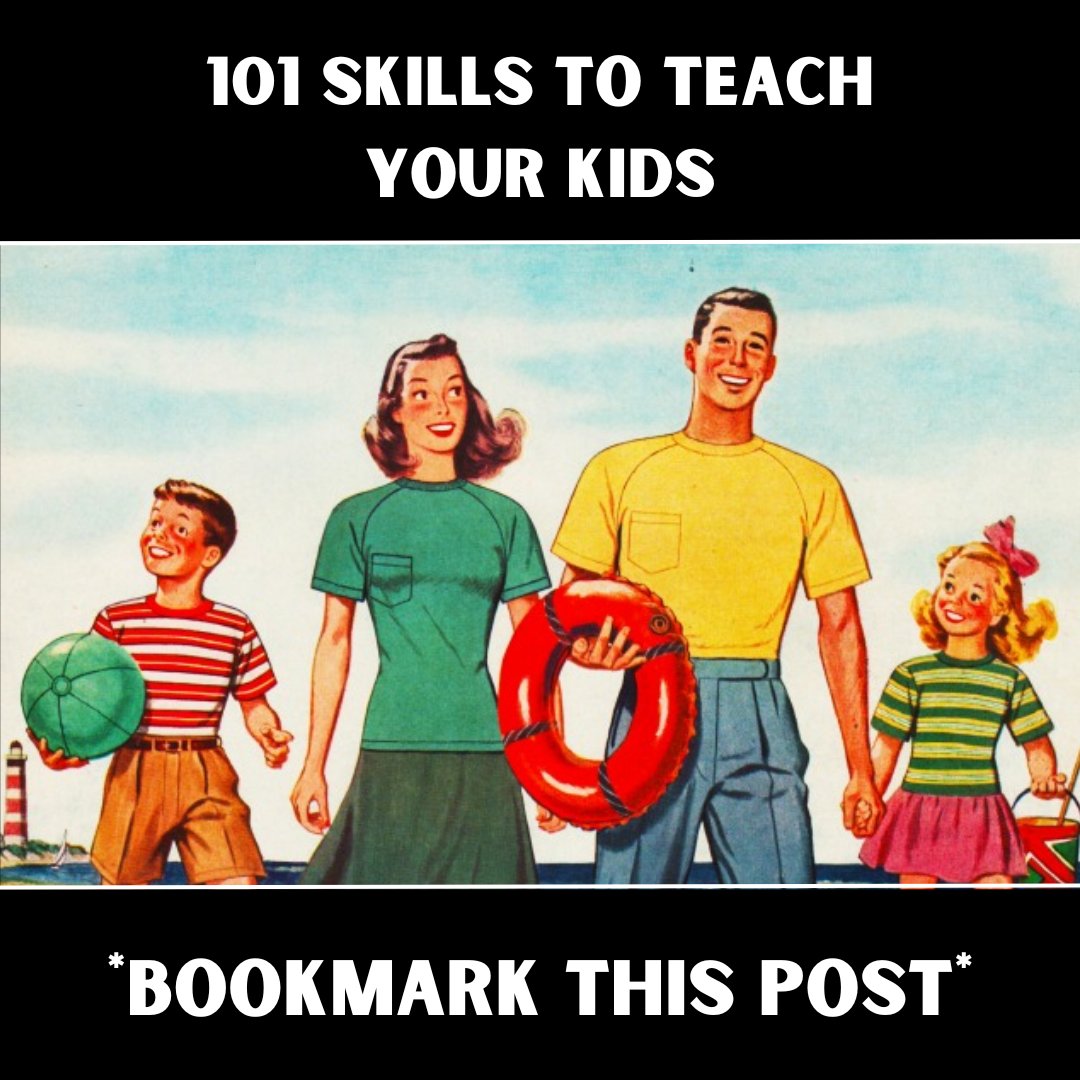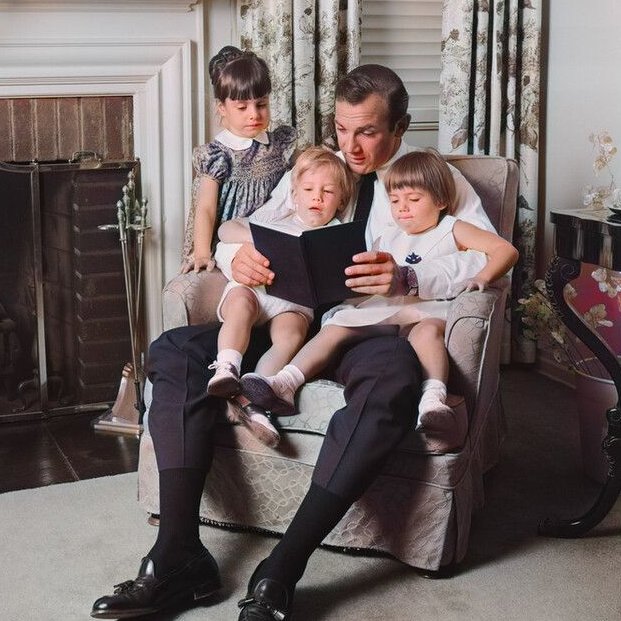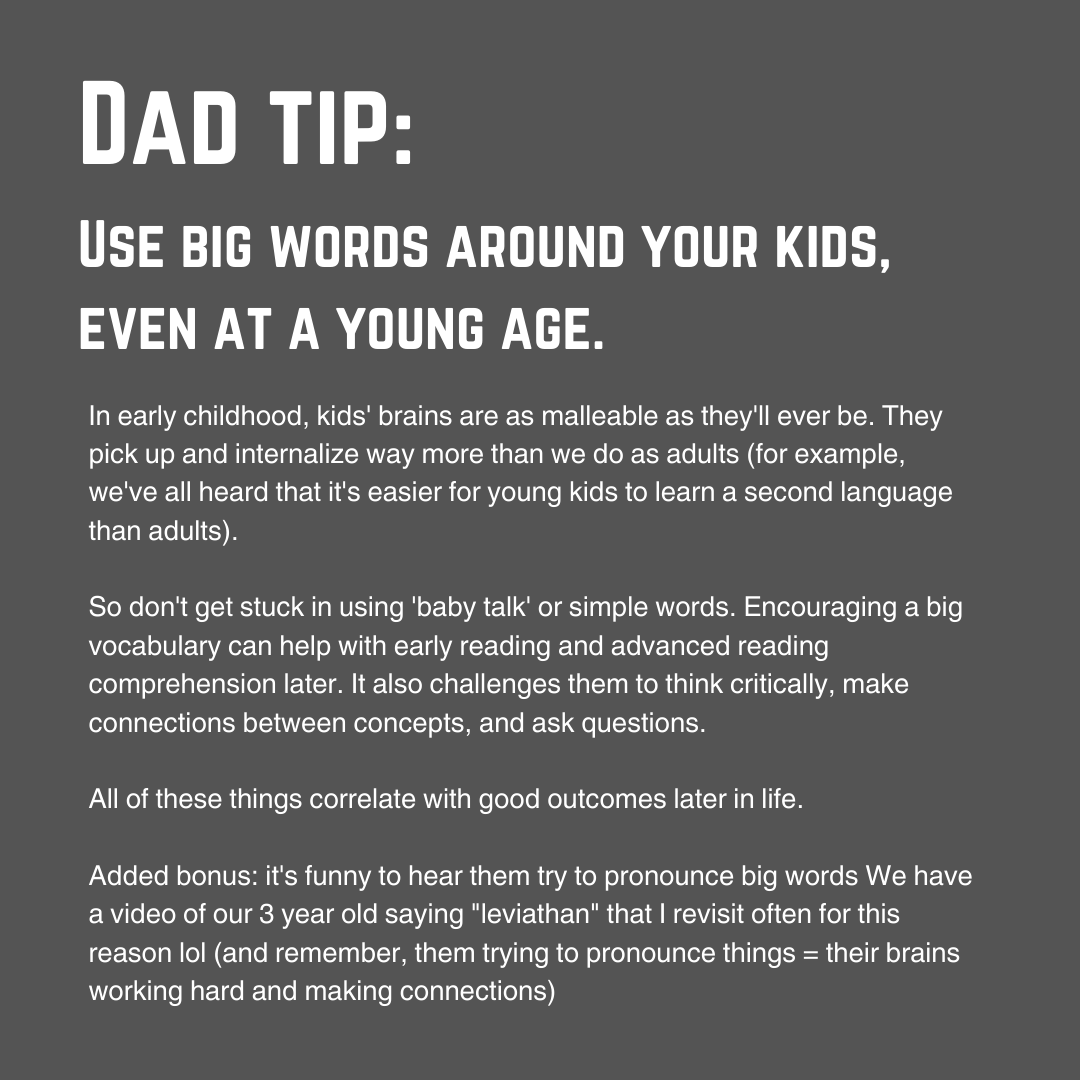Your parents LIED to you!
Here are 5 LIES we tell our children, and what we should say instead
=THREAD=
Here are 5 LIES we tell our children, and what we should say instead
=THREAD=

A few days ago we discussed lies parents tell their kids
The intentions behind this type of guidance are [usually] noble, but their effects can be atrocious
We’ll discuss a few of the most popular answers, and what messages we should send in their place
The intentions behind this type of guidance are [usually] noble, but their effects can be atrocious
We’ll discuss a few of the most popular answers, and what messages we should send in their place
https://twitter.com/SaveYourSons/status/1308528268354752513?s=20
THE LIES:
1. Just be yourself
2. Follow your passion
3. Everything in moderation
4. Money is the root of all evil
5. You can do anything you set your mind to
LET'S BEGIN
1. Just be yourself
2. Follow your passion
3. Everything in moderation
4. Money is the root of all evil
5. You can do anything you set your mind to
LET'S BEGIN
LIE 1: Just be yourself!
What does a child or adolescent know about their ‘self’?
Nearly nothing!
People spend their whole lives attempting to discover their true ‘selves’, and many never succeed
Yet we dole this advice out to children like it’s some profound bit of wisdom
What does a child or adolescent know about their ‘self’?
Nearly nothing!
People spend their whole lives attempting to discover their true ‘selves’, and many never succeed
Yet we dole this advice out to children like it’s some profound bit of wisdom

Want to make friends? Be yourself
Want to get the girl? Be yourself
Want to succeed? Be yourself
This means NOTHING to a child
By saying ‘be yourself’ we skip over mountains of practical, actionable advice that could ACTUALLY help them get what they’re after
Want to get the girl? Be yourself
Want to succeed? Be yourself
This means NOTHING to a child
By saying ‘be yourself’ we skip over mountains of practical, actionable advice that could ACTUALLY help them get what they’re after
LIE 1: SOLUTION
STOP using ‘Be yourself’ as a blanket statement
Instead, tailor your advice to what they’re actually trying to achieve
Want to make friends? Teach social skills
Want to get the girl? Teach what attracts women
Want to succeed? Teach habits and hard work
STOP using ‘Be yourself’ as a blanket statement
Instead, tailor your advice to what they’re actually trying to achieve
Want to make friends? Teach social skills
Want to get the girl? Teach what attracts women
Want to succeed? Teach habits and hard work
Eventually, once they’ve mastered the actual skills and habits necessary to get what they want, we SHOULD emphasize authenticity in our actions
So yes, ‘being yourself’ will ultimately help, but not until you’ve mastered the BASICS
Start with those, every time
So yes, ‘being yourself’ will ultimately help, but not until you’ve mastered the BASICS
Start with those, every time
LIE 2: Follow your passion!
Repeat after me: PASSION DOES NOT EQUAL FULFILLMENT
You can follow your passion to the ends of the earth, but if you aren’t getting FEEDBACK (ie if no one is paying attention, or no one likes what you’re doing)
You WILL be unfulfilled
Repeat after me: PASSION DOES NOT EQUAL FULFILLMENT
You can follow your passion to the ends of the earth, but if you aren’t getting FEEDBACK (ie if no one is paying attention, or no one likes what you’re doing)
You WILL be unfulfilled

Trust when I say you can spend your whole life toiling at your passion
If no one notices, if you’re shouting into the void
You will gradually begin asking yourself:
Does this matter?
Am I making a difference?
The answers to those questions will drive you to madness
If no one notices, if you’re shouting into the void
You will gradually begin asking yourself:
Does this matter?
Am I making a difference?
The answers to those questions will drive you to madness
LIE 2: SOLUTION
Passion and fulfillment come from the journey to greatness, not the other way around
Become GREAT at something valuable, and passion will follow
But merely ‘be’ PASSIONATE about something? Greatness and value may well elude you forever
So what can we say?
Passion and fulfillment come from the journey to greatness, not the other way around
Become GREAT at something valuable, and passion will follow
But merely ‘be’ PASSIONATE about something? Greatness and value may well elude you forever
So what can we say?
Help your kids identify their aptitudes
TELL them when they do something well
HELP them steer that talent into something valued by the world
TEACH them that to leverage our gifts we must have an intentional plan, and
GUIDE them toward creating that plan
'PASSION" be damned!
TELL them when they do something well
HELP them steer that talent into something valued by the world
TEACH them that to leverage our gifts we must have an intentional plan, and
GUIDE them toward creating that plan
'PASSION" be damned!
LIE 3: Everything in moderation
What a dangerous lie this is!
It’s typically assigned to discussions around vices and easily extrapolated by our children:
From ‘moderating’ junk food or video games early in life
To alcohol, drugs, and sex as they get older
What a dangerous lie this is!
It’s typically assigned to discussions around vices and easily extrapolated by our children:
From ‘moderating’ junk food or video games early in life
To alcohol, drugs, and sex as they get older

Some of the smartest minds IN THE WORLD are dedicated to ensuring these vices are as ADDICTIVE as possible
They want your kids FAT, DRUGGED, and HOOKED
Their business model REQUIRES it
And you tell your children it’s no big deal, so long as they practice ‘moderation’??
They want your kids FAT, DRUGGED, and HOOKED
Their business model REQUIRES it
And you tell your children it’s no big deal, so long as they practice ‘moderation’??
LIE 3: SOLUTION
Most people can’t effectively moderate themselves, especially facing the current brain-power and resources dedicated to ensuring their addiction
Our brains weren’t designed to resist modernity’s level of stimulation
TEACH YOUR CHILDREN THIS
Most people can’t effectively moderate themselves, especially facing the current brain-power and resources dedicated to ensuring their addiction
Our brains weren’t designed to resist modernity’s level of stimulation
TEACH YOUR CHILDREN THIS
Our kids are smarter than we think
Help them see how they’re being targeted by marketing, how their brains are being hacked
All in an attempt to make moderation impossible
Don't simply preach 'moderation' and hope your kids come out unscathed
Help them see the WHOLE PICTURE
Help them see how they’re being targeted by marketing, how their brains are being hacked
All in an attempt to make moderation impossible
Don't simply preach 'moderation' and hope your kids come out unscathed
Help them see the WHOLE PICTURE
LIE 4: Money is the root of all evil
‘The rich are greedy’
‘The haves and have nots are at war’
And on and on...
It has somehow become more ‘noble’ to act as if one desires to never be wealthy
And the rich are seen as inherently immoral by the mere fact of their existence
‘The rich are greedy’
‘The haves and have nots are at war’
And on and on...
It has somehow become more ‘noble’ to act as if one desires to never be wealthy
And the rich are seen as inherently immoral by the mere fact of their existence

So we teach our children that ‘money isn’t everything’
To ‘follow your passion’ and not get ‘caught up’ in chasing money
Or worse we don’t discuss money at all, giving our leaders in the media carte blanche to imprint whatever messages they’d like into our children
To ‘follow your passion’ and not get ‘caught up’ in chasing money
Or worse we don’t discuss money at all, giving our leaders in the media carte blanche to imprint whatever messages they’d like into our children
LIE 4: SOLUTION
If you want to do any good in this world
Any REAL, scalable good
You will require money
And lots of it
Demonizing the accumulation of resources only holds you back from leaving the mark you were meant to make on this earth
So what should we tell our kids?
If you want to do any good in this world
Any REAL, scalable good
You will require money
And lots of it
Demonizing the accumulation of resources only holds you back from leaving the mark you were meant to make on this earth
So what should we tell our kids?
TALK ABOUT MONEY
Do so with discretion, and teach your children to practice the same
But talk about money nonetheless
Tell them they can better help the world if they first help themselves
Money makes every aspiration larger and more plausible
It should be pursued as such
Do so with discretion, and teach your children to practice the same
But talk about money nonetheless
Tell them they can better help the world if they first help themselves
Money makes every aspiration larger and more plausible
It should be pursued as such
LIE 5: You can do anything you set your mind to
If you just believe!
If you just dream!
If you just work hard, you can be ANYTHING!
How many of our parents fed us this rubbish? And how many of us were left sorely disappointed when we discovered it to be patently false?
If you just believe!
If you just dream!
If you just work hard, you can be ANYTHING!
How many of our parents fed us this rubbish? And how many of us were left sorely disappointed when we discovered it to be patently false?

The advice is meant well, and an irrational self-belief is indeed critically important for success
But framing it as it’s framed above, we set our children up for a jarring awakening upon adulthood
I could never have been an NFL linebacker
You will never be Queen of England
But framing it as it’s framed above, we set our children up for a jarring awakening upon adulthood
I could never have been an NFL linebacker
You will never be Queen of England
LIE 5: SOLUTION
No they cannot be anything they want
But yes, they can ABSOLUTELY be great
They can undoubtedly become elite AT SOMETHING
Your job is to help them find out what that is
Don't destroy their dreams, merely reframe them
Steering them always toward greatness
No they cannot be anything they want
But yes, they can ABSOLUTELY be great
They can undoubtedly become elite AT SOMETHING
Your job is to help them find out what that is
Don't destroy their dreams, merely reframe them
Steering them always toward greatness
Teach them that everything requires good habits and hard work, and we all have greatness within us
Are they short and slow but want to be an NBA player?
Promise to help them become the best athlete they can be
Always emphasizing practice and improvement’s role in success
Are they short and slow but want to be an NBA player?
Promise to help them become the best athlete they can be
Always emphasizing practice and improvement’s role in success
Don’t say they ‘can’t’ do something
Instead instill that with the right habits and systems they will become great
Be realistic about the odds
Tell them their dreams may require a hard fight, but that you are ALWAYS fighting with them
Instead instill that with the right habits and systems they will become great
Be realistic about the odds
Tell them their dreams may require a hard fight, but that you are ALWAYS fighting with them
We've now reached the end
Thank you for helping me dispel these popular parenting LIES
Are these the only lies we feed our children?
NO
What other dangerous lies have you heard repeated? Share them in the comments
And RT to help spread our message
Now go forth and be great!
Thank you for helping me dispel these popular parenting LIES
Are these the only lies we feed our children?
NO
What other dangerous lies have you heard repeated? Share them in the comments
And RT to help spread our message
Now go forth and be great!

• • •
Missing some Tweet in this thread? You can try to
force a refresh
















